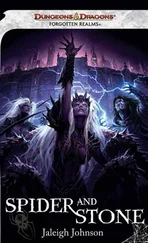The tide was on its outward ebb when the four happy companions jumped down, hand in hand, from the esplanade to the shingle. The long dark windrow of broken shells and seaweed drew a pleasant dividing line between the dry and the wet sand. Luke always associated the stranded star-fish and jelly-fish and bits of scattered drift-wood which that windrow offered, with those other casually tossed-up treasures with which an apparently pagan-minded providence had bestrewn his way!
Once well out upon the sands, and while the girls, with little shrieks and bursts of merriment, were pushing one another into the reach of the tide, Luke turned to survey with a deep sigh of satisfaction, the general appearance of the animated scene.
The incomparable watering-place, — with its charming “after-glow,” as Mr. Hardy so beautifully puts it, “of Georgian gaiety,”—had never looked so fascinating as it looked this August afternoon.
The queer old-fashioned bathing-machines, one of them still actually carrying the Lion and Unicorn upon its pointed roof, glittered in the sunshine with an air of welcoming encouragement. The noble sweep of the houses behind the crescent-shaped esplanade, with the names of their terraces — Brunswick, Regent, Gloucester, Adelaide — so suggestive of the same historic epoch, gleamed with reciprocal hospitality; nor did the tall spire of St. John’s Church, a landmark for miles round, detract from the harmony of the picture.
On Luke’s left, as he turned once more and faced the sea, the vibrating summer air, free at present from any trace of mist, permitted a wide and lovely view of the distant cliffs enclosing the bay. The great White Horse, traced upon the chalk hills, seemed within an hour’s walk of where he stood, and the majestic promontory of the White Nore drew the eye onward to where, at the end of the visible coast-line, St. Alban’s Head sank into the sea.
On Luke’s right the immediate horizon was blocked by the grassy eminence known to dwellers in Weymouth as “the Nothe”; but beyond this, and beyond the break-water which formed an extension of it, the huge bulk of Portland — Mr. Hardy’s Isle of the Slingers — rose massive and shadowy against the west.
As he gazed with familiar pleasure at this unequalled view, Luke could not help thinking to himself how strangely the pervading charm of scenes of this kind is enhanced by personal and literary association. He recalled the opening chapters of “The Well-Beloved,” that curiously characteristic fantasy-sketch of the great Wessex novelist; and he also recalled those amazing descriptions in Victor Hugo’s “L’Homme qui Rit,” which deal with these same localities.
Shouts of girlish laughter distracted him at last from his exquisite reverie, and flinging himself down on the hot sand he gave himself up to enjoyment. Holding her tight by either hand, the two elder girls, their skirts already drenched with salt-water, were dragging their struggling companion across the foamy sea-verge. The white surf flowed beneath their feet and their screams and laughter rang out across the bay.
Luke called to them that he was going to paddle, and implored them to do the same. He preferred to entice them thus into the deeper water, rather than to anticipate for them a return home with ruined petticoats and wet sand-filled shoes. Seeing him leisurely engaged in removing his boots and socks and turning up his trousers, the three exuberant young people hurried back to his side and proceeded with their own preparations.
Soon, all four of them, laughing and splashing one another with water, were blissfully wading along the shore, interspersing their playful teasing with alternate complimentary and disparaging remarks, relative to the various bathers whose isolation they invaded.
Luke’s spirits rose higher and higher. No youthful Triton, with his attendant Nereids, could have expressed more vividly in his radiant aplomb, the elemental energy of air and sea. His ecstatic delight seemed to reach its culmination as a group of extraordinarily beautiful children came wading towards them, their sunny hair and pearl-bright limbs gleaming against the blue water.
At the supreme moment of this ecstasy, however, came a sudden pang of contrary emotion, — of dark fear and gloomy foreboding. For a sudden passing second, there rose before him, — it was now about half-past four in the afternoon, — the image of his brother, melancholy and taciturn, his heart broken by Lacrima’s trouble. And then, like a full dark tide rolling in upon him, came that ominous reaction, spoken of by the old pagan writers, and regarded by them as the shadow of the jealousy of the Immortal Gods, envious of human pleasure — the reaction to the fare of the Eumenides.
His companions remained as gay and charming as ever. Nothing could have been prettier than to watch the mixture of audacity and coyness with which they twisted their frocks round them, nothing more amusing than to note the differences of character between the three, as they betrayed their naive souls in their childish abandonment to the joy of the hour.
Both Phyllis and Annie were tall and slender and dark. But there the likeness between them ceased. Annie had red pouting lips, the lower one of which protruded a little beyond its fellow, giving her face in repose a quite deceptive look of sullenness and petulance. Her features were irregular and a little heavy, the beauty of her countenance residing in the shadowy coils of dusky hair which surmounted it, and in the velvet softness of her large dark eyes. For all the heaviness of her face, Annie’s expression was one of childlike innocence and purity; and when she flirted or made love, she did so with a clinging affectionateness and serious gravity which had much of the charm of extreme youth.
Phyllis, on the contrary, had softly outlined features of the most delicate regularity, while from her hazel eyes and laughing parted lips perpetual defiant provocations of alluring mischief challenged everyone she approached. Annie was the more loving of the two, Phyllis the more lively and amorous. Both of them made constant fun of their little curly-headed companion, whose direct boyish ways and whimsical speeches kept them in continual peals of merriment.
Tired at last of paddling, they all waded to the shore, and crossing the warm powdery sand, which is one of the chief attractions of the place, they sat down on the edge of the shingle and dried their feet in the sun.
Reassuming their shoes and stockings, and demurely shaking down their skirts, the three girls followed the now rather silent Luke to the little tea-house opposite the Clock-Tower, in an upper room of which, looking out on the sea, were several pleasant window-seats furnished with convenient tables.
The fragrant tea, the daintiness of its accessories, the fresh taste of the bread and butter, not to speak of the inexhaustible spirits of his companions, soon succeeded in dispelling the stone-carver’s momentary depression.
When the meal was over, as their train was not due to leave till nearly seven, and it was now hardly five, Luke decided to convey his little party across the harbour-ferry. They strolled out of the shop into the sunshine, not before the stone-carver had bestowed so lavish a tip upon the little waitress that his companions exchanged glances of feminine dismay.
They took the road through the old town to reach the ferry, following the southern of the two parallel streets that debouch from the Front at the point where stands the old-fashioned equestrian statue of George the Third. Luke nourished in his heart a sentimental tenderness for this simple monarch, vaguely and quite erroneously associating the royal interest in the place with his own dreamy attachment to it.
When they reached the harbour they found it in a stir of excitement owing to the arrival of the passenger-boat from the Channel Islands, one of the red-funneled modern successors to those antique paddle-steamers whose first excursions must have been witnessed from his Guernsey refuge by the author of the “Toilers of the Deep.” Side by side with the smartly painted ship, were numerous schooners and brigs, hailing from more northern regions, whose cargoes were being unloaded by a motley crowd of clamorous dock-hands.
Читать дальше












